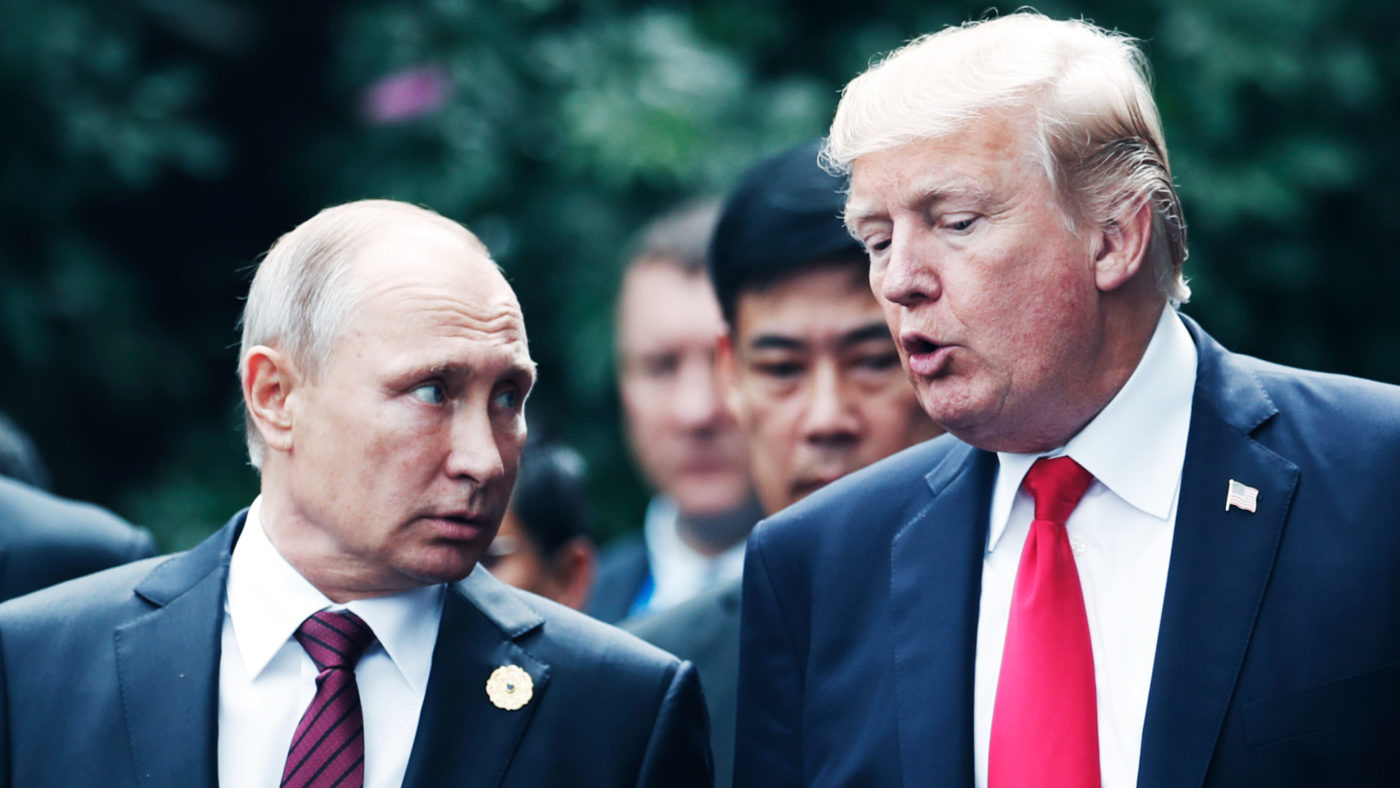Madeleine Albright, US secretary of state in the Clinton administration, famously described America as the indispensable nation. Her supposed vaingloriousness has been criticised but she was right. In the absence of a supranational authority capable of exercising sovereignty, the task of guaranteeing global public goods like regional security and a reserve currency falls to the world’s leading democracy. Tragically, the United States under President Trump is suspicious of that historic role. And into the vacuum that America leaves, President Putin steps. It’s an abdication of responsibility that undermines the liberal international order and betrays peoples struggling against oppression.
The immediate victims of this shift in relative power are nearly 400,000 civilians in Eastern Ghouta in Syria, who last week suffered heavy bombardment (with hundreds of fatalities) from the depraved Assad regime.
Syria is a client state of Russia. The UN Security Council carried a resolution on Saturday demanding that “all parties cease hostilities without delay for at least 30 consecutive days” to allow the transport of humanitarian aid. The compromises required by Russia ensure that the resolution is an exhibition of handwringing. It doesn’t establish a starting date and it doesn’t constrain Syrian and Russian forces from continuing attacks under the fiction of being engaged in anti-terrorist operations. Essentially, all opponents of the regime are labelled terrorists by Assad, Putin and their apologists.
This is not quite the scenario that Russian state propaganda looked forward to under the Trump administration but it’s bad enough. Margarita Simonyan, editor in chief of the fake news channel RT (formerly Russia Today), said triumphantly on the night of Mr Trump’s election that she would retire when “Trump recognises Crimea as part of Russia, strikes a deal with us on Syria, and frees Julian Assange”. These things have not happened, nor are they likely to (and as Assange is not imprisoned but holed up in the Ecuadorean embassy in London of his own volition, the last isn’t even capable of being implemented). Yet there is a new modus vivendi in international relations, whereby the Putin regime can in effect do whatever it likes, however outrageous, confident there will be no pushback from the US. Indeed, interfering in America’s presidential election is one of those flagrant Russian violations of international comity, and Mr Trump was the beneficiary.
To point out how far American diplomatic influence has fallen under Mr Trump is a commonplace of commentary but it bears repeating. For all their varying international policies (some of them, as under the Nixon administration, very bad indeed), every postwar US administration till this one was committed to participating in the institutions established to tame international conflict in the postwar era. The expansion of global trade owes much to the institutions planned by allied policymakers at the Bretton Woods conference in 1944. The Nato alliance, founded in 1949, ensured that Western Europe remained democratic and Eastern Europe once again became so even in the face of Soviet expansionism and threats.
The current rulers of the Kremlin have it easier in that respect. They and their clients don’t have to contend with a similarly cohesive transatlantic alliance. There’s nothing to be done by us pundits that will affect the world of statecraft but we can at least expose the propaganda efforts by which the Putin regime advances its goals. As it happens, last weekend marked the 70th anniversary of the coup engineered by Stalin in which democracy was snuffed out in what was then Czechoslovakia. Ms Albright posted this comment on Twitter on Sunday: “70 years ago today a communist coup destroyed democracy in my native Czechoslovakia. The coup forced my family into exile, and months later we were welcomed as refugees in the USA. Ever since I’ve been a grateful American, and I’ve learned to never take democracy for granted.”
Strange as it may seem, there was a tiny core of Labour MPs at the time who defended – yes, defended – the Prague coup. One was a man called Konni Zilliacus, who wrote in a letter to the Tribune newspaper: “The Czechoslovak workers acting pretty much unanimously through the trade unions and the Social Democratic as well as the Communist Party made a bloodless semi-revolution rather than allow the Right and centre to get away with their avowed object in bringing down the Government and forcing an anti-Communist coalition on the model of what has happened in France and Italy.”
It was Zilliacus’s ceaseless pro-Soviet sentiments that led George Orwell, Tribune’s most celebrated writer, to conclude that “in spite of all the fashionable chatter of the moment, everyone knows in his heart that we should choose America”. That was the choice made by Clement Attlee’s postwar Labour government, which was a crucial influence in the founding of Nato.
We are now in very strange times. America is disengaged from its allies. Attlee’s successor as Labour leader, Jeremy Corbyn, is of like mind with President Trump in failing to understand or appreciate that Nato is a voluntary organisation committed by charter to mutual defence. And whereas pro-Kremlin sympathies were once a part of the political fringe in Western Europe (they ensured Zilliacus’s sadly temporary expulsion from the Labour Party), they are now commonplace in the circle around Mr Corbyn. The greatest supporters the Kremlin has in western Europe are the parties of the anti-immigrant far Right, like the National Front in France, the Freedom Party of Austria, the Alternative for Germany and, of course, Ukip.
It’s a dismal prospect. My late friend Christopher Hitchens anticipated all of this when he wrote in 2009: “It’s strange to think that many on the left have been slow to see the menace of one-party, one-state or messianic systems.” Some who purport to be on the left actually see such causes as allies. And that’s why, like Christopher, I can do nothing else but fight these people.


